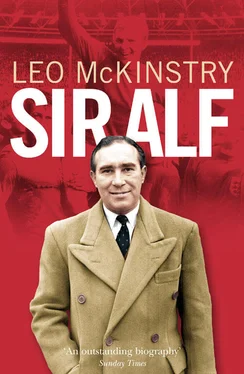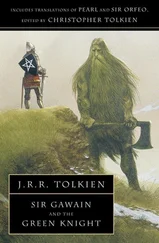The paralysis within English football was perhaps most graphically highlighted in the antique way the FA and the Football League were run. Both were managed more like a somnolent Oxford college than a professional sports body. The Football Association, which was composed largely of representatives from the counties and old universities, had a certain contempt for men who earned their living from the game. Snobbery, poor record keeping and amateurism were rife throughout the organization. When Stanley Rous first became secretary in 1934, there were complaints about his inappropriate dress for matches. ‘I would remind you,’ said one old councillor, ‘that your predecessor would go to matches in a top hat and frock coat.’ This kind of nonsense was still carrying on after the war, with FA members more worried about protocol than performance. The Football League was just as bad. The Yorkshireman Alan Hardaker, who was later to be compared to a cross between Caligula and Jimmy Cagney because of his autocratic methods, arrived at the League’s headquarters in Preston in 1951, as deputy to the secretary Frederick Howarth. Hardaker was shocked at what he found. Housed in an old vicarage, the League kept no proper records and stored files in the attics. Like some Victorian colonialist, Howarth relied on telegrams rather than the telephone. His loathing for the press equalled that for modern technology. ‘Howarth was against change of any sort, particularly if it meant more work for him,’ wrote Hardaker. As a result, ‘The League was like a machine that had been lying in a corner for three quarters of a century.’
The antiquated approach extended to the selection of the national team. What should have been the job of the England manager was instead in the hands of a group of opinionated, often elderly, figures who had absolutely no experience of international football. The eight FA selectors were inordinately proud of their role and enjoyed their trips abroad, but they disastrously lacked judgement or any long-term vision. Riddled with prejudices, often displaying blatant bias towards players from their own clubs, they showed no consistency, no understanding of the needs of modern football. ‘There was always this chopping and changing. Someone would have a tremendous game for England and then be dropped, for no reason,’ says Sir Tom Finney. At their meetings, the selectors would go through each position in turn, seeking nominations and then holding a vote to decide the choice if there were a dispute. On occasions, they could be breathtakingly ignorant. In his first games for England, Bobby Moore was frequently mistaken by one selector for the Wolves midfielder Ron Flowers, purely because they both had blond hair. Similarly, John Connelly, the Burnley winger, recalled talking to a selector during the 1962 World Cup in Chile: ‘All the time it was Alan this, Alan that. He thought I was our reserve goalkeeper, Alan Hodgkinson.’
The man trying to grapple with this system was Walter Winterbottom, who had been appointed England manager and FA Director of Coaching in 1946. The very fact that these two enormous jobs were combined in one individual only demonstrates the indifference that the FA showed towards the management of the national team. In the face of his burden, Winterbottom fought hard to bring some rationality to the chaos. Before the war, he had been an undistinguished player with Manchester United before a back injury ended his career. Having paid his way through Carnegie College of Physical Education, he served as a PT instructor in the Air Ministry during the war, rising to the rank of wing-commander. His military credentials, earnest, academic manner and plummy voice appealed to the socially conscious chiefs of the FA. But Winterbottom was no cypher. As passionate and obsessive about football as Alf Ramsey, he had analysed the game in depth and, through his position as Director of Coaching, he aimed to start a technical revolution in English football by raising skills and tactical awareness. Many of the future generations of top managers were inspired by Winterbottom’s coaching. ‘Walter was a leader, a messiah, he set everyone’s eyes alight,’ said Ron Greenwood. Sir Bobby Robson was moved to call him ‘a prophet. He was my motivator in terms of my staying in football.’ Alf himself wrote of one of Winterbottom’s team talks during his first England tour in 1948: ‘His tactical knowledge of Continental teams, and his outlook on the Italian methods and temperament left a lasting impression on me.’
But, as well as the vicissitudes of the selection process, Winterbottom was faced with two other major problems. The first was the reluctance of some major stars to accept any degree of instruction, especially from someone who had never played international football. With a narrowness typical of the period, certain players believed that fitness and ability were all that mattered, with coaching regarded as alien and demeaning. In an interview with the BBC, the centre-forward Tommy Lawton recalled an early pre-match session with Winterbottom:
He said to us, ‘The first thing we’ll do, chaps, is that we’ll meet in half an hour. I’ve arranged a blackboard and we will discuss tactics.’
I looked at him and said, ‘We’ll discuss WHAT?’
‘Well, how we’re going to play it and do it.’
So I said, ‘Are you telling me that you’ve got a blackboard downstairs, and, God forbid, you’re going to tell Stan Matthews how to play at outside right and me, you’re going to tell me, how to score goals? You’ve got another think coming.’
For all its arrogance, Lawton’s contempt illustrated the deeper, long-term problem with Winterbottom: his failure to command automatic respect from players. Winterbottom was too remote, too theoretical to motivate his teams. His lack of top-class experience told against him. Once, on a coaching course, he asked a group of professionals:
‘Can you give me a reason why British players lack environmental awareness?’
‘Because we didn’t get enough meat during the war,’ came the cynical reply.
Unlike Alf, he did not have that natural, intangible aura which incites devotion. ‘Walter was a likeable fellow,’ says Roger Hunt, one of the 1966 winners, ‘but he didn’t instill the same degree of discipline as Alf did later. Somehow, he came across more like an old-fashioned amateur.’ Alan Peacock, the Middlesbrough and Leeds striker, is even more scathing:
Alf was very different to Walter Winterbottom. I was not impressed with Walter at all. He was like a schoolmaster. That’s how he came across. It was so much better under Alf; he knew how to set teams up. But Walter was more like a cricket coach from the Gentlemen. He had little understanding of the way professionals operate. Walter was too scared to upset anyone. Some players need a kick up the arse, others can be talked to.
Bobby Charlton, who played for four years under Winterbottom, felt that
there was no sense of belonging in the team. Walter had this impeccable accent, whereas football’s a poor man’s game, players expect to be sworn at, a bit of industrial language. Through no fault of his own, Walter used to make it seem an academic language. He used to go through things in discussion that I felt were obvious to people who were supposed to be good players. It was theory all the time.
Jimmy Greaves, who like Charlton began his England career in the late fifties, has this analysis of the difference between Winterbottom and Ramsey:
Walter was a joy, although I never understood a word he said. I used to think, what on earth is he talking about, but I loved him all the same. I had the same respect for Alf, but the fun did go out of it. The thing about Walter was he could smile quite easily in defeat. If I wanted a manager who’d make friends, it would be Walter. If I wanted a winning team, I’d take Alf. He brought atmosphere and spirit. This was something Walter failed to do. Too often during Walter’s era, teams were like strangers, on and off the pitch.
Читать дальше












